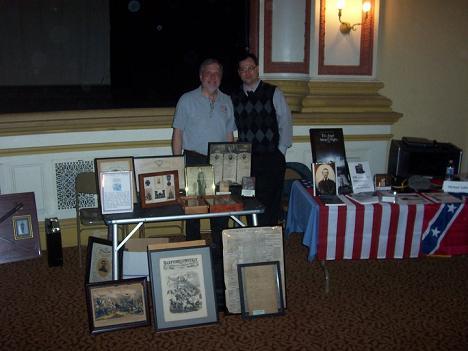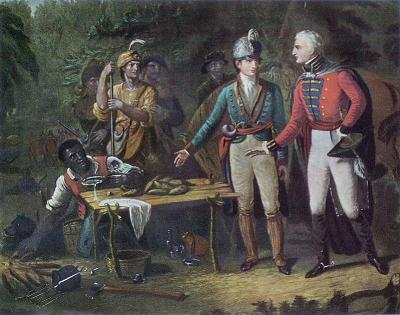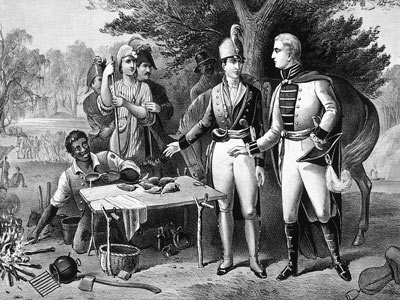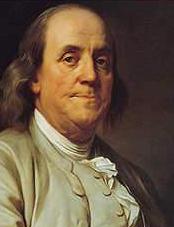Back from the 'Burg

Scott Lang and me at the CarnegieCarnegie's 6th Annual Civil War Weekend
This past weekend I had the honor of participating in the CarnegieCarnegie’s 6th Annual Civil War Weekend in Pittsburgh. My contribution to the festival (which featured re-enactments, musical performances, exhibits, tours, sutlers and a ball) came in the form of a lecture that presented the experiences of the 123rd Pennsylvania Volunteers at the Battle of Fredericksburg, as well as a screening of our documentary “The Angel of Marye’s Heights.” I will post the video of my talk (if the quality is decent), or the transcripts w/ slides in the coming weeks. Personally, I wasn’t that pleased with my delivery, but the audience seemed very receptive and enjoyed it. I was joined in the Music Hall by Pittsburgh author Scott Lang who wrote The Forgotten Charge: The 123rd Pennsylvania at Marye's Heights, Fredericksburg, Virginia. Scott shared an extensive knowledge of the 123rd and displayed his wonderful collection of relics. It was great to have a REAL expert on hand.
I was unable to make it down to the new Ben Franklin exhibit at the Heinz Museum as the NRA Convention was in town. Instead I had the pleasure of having dinner and cocktails with longtime friend Maroon David, a tremendously gifted historian and teacher's assistant at Carnegie Mellon University. In addition to providing me with some insights on achieving academic accreditation, Maroon also gave me a copy of American Scripture: Making the Declaration of Independence by Pauline Maier. One of my interests nowadays is the misrepresentation of the Founding Documents in support of a religious or political agenda. I am amazed at how many folks sincerely believe that the Constitution was somehow inspired or ordained by God and is therefore a sacred document free from scrutiny. Personally, as a Christian, I find it extremely offensive that anyone would equate the Constitution with the Bible, yet it is Christians who are often the guiltiest at propagating this notion. Let’s see what Thomas Jefferson had to say on the matter:
 Some men look at constitutions with sanctimonious reverence, and deem them like the arc of the covenant, too sacred to be touched; who ascribe to the men of the preceding age a wisdom more than human, and suppose what they did to be beyond amendment. Let us follow no such examples, nor weakly believe that one generation is not as capable as another of taking care of itself, and of ordering its own affairs. Each generation is as independent as the one preceding, as that was of all which had gone before. (Letter to Samuel Kerchival, 1816. Page 199. The Jeffersonian Cyclopedia)
Some men look at constitutions with sanctimonious reverence, and deem them like the arc of the covenant, too sacred to be touched; who ascribe to the men of the preceding age a wisdom more than human, and suppose what they did to be beyond amendment. Let us follow no such examples, nor weakly believe that one generation is not as capable as another of taking care of itself, and of ordering its own affairs. Each generation is as independent as the one preceding, as that was of all which had gone before. (Letter to Samuel Kerchival, 1816. Page 199. The Jeffersonian Cyclopedia)
Of course the Constitution isn't the only document worth our examination. According to the publisher American Scripture provides a thorough analysis of the Declaration of Independence's origins, influence, and regard. The author also examines the ways in which the Declaration has been revered and redefined by different groups of Americans. In the current ‘Age of Misinformation’ where it has become tolerable for political extremists and fringe groups to misquote and misrepresent our Founders (and their documents), it is imperative that we learn as much as we can about their history. I just started reading this book, so I am not quite sure if Ms. Maier’s interpretations are revolutionary. I will post my own review after I finish reading it.
Hope to see you there
Just a reminder: This Saturday (April 30th) I will be participating in the 6th Annual Civil War Weekend at the CarnegieCarnegie Library and Music Hall in Pittsburgh PA. At 11:00 and 1:45 I will be giving a lecture titled “Gallant Boys of the 123rd,” which presents the experiences of the PA Volunteers at the Battle of Fredericksburg. At 12:45 and 3:30 I will be hosting a screening of our documentary “The Angel of Marye’s Heights” which presents the story of Sgt. Richard Kirkland who gave water to his wounded enemies. I will have our traveling exhibit that features a behind the scenes kiosk and movie props. I will also be joined by Pittsburgh author Scott Lang who wrote The Forgotten Charge: The 123rd Pennsylvania at Marye's Heights, Fredericksburg, Virginia. Scott has a wonderful collection of 123rd relics that he will be displaying at an adjacent table. Copies of “The Angel” DVD will be for sale ($12), as well as Will White’s soundtrack CD ($10). See the complete weekend schedule.
Were the Founding Fathers Socialists?
 The textbook definition of Socialism is “an economic and political theory, advocating public or common ownership, as well as the cooperative management, allocation and distribution of resources.” Current socialist parties existing in the United States include the Socialist Party USA, the Socialist Workers Party and the Democratic Socialists of America, the latter boasting approximately 10,000 members. Despite the longtime existence of these organizations, the modern socialist movement did not get much attention in the United States until the 2009 election of our current president, Barack Obama. Since then “socialism” has become one of the most inflammatory and misused words in our political vocabulary.
The textbook definition of Socialism is “an economic and political theory, advocating public or common ownership, as well as the cooperative management, allocation and distribution of resources.” Current socialist parties existing in the United States include the Socialist Party USA, the Socialist Workers Party and the Democratic Socialists of America, the latter boasting approximately 10,000 members. Despite the longtime existence of these organizations, the modern socialist movement did not get much attention in the United States until the 2009 election of our current president, Barack Obama. Since then “socialism” has become one of the most inflammatory and misused words in our political vocabulary.
Initially, the term was commandeered by the conservative movement, primarily made up of Republicans, to be used as an accusatory campaign tactic. This was in direct response to the then Democratic candidate Barack Obama’s comments alluding to the expansion of government intervention and redistribution of wealth. It was later used to christen the counter-argument against the Obama Administration’s proposed changes such as government-funded bailouts and universal health care reform. Today it has become a permanent moniker used by the right when describing the president and his liberal policies. Unfortunately, it is also misused continually by Tea Party members, disgruntled GOP supporters and conservative political commentators alike.
I was surprised to find that more than a few political scholars maintain that true socialism was in fact, democratic in nature. Proponents of the system add that it properly prioritizes human needs, thus benefiting a broader stretch of the population. Additionally, many citizens who identify themselves as being on the left, support the notion of incorporating a socialist agenda into the country’s fledgling capitalist system. At the same time political traditionalists and Republican nay Sayers passionately protest the concept and liken it to oppressive forms of government including communism and fascism. Both arguments have merit.
As the country moves further ahead into the president’s first term, little change appears to have manifested on either side of the aisle. In fact, things are worse in some instances as neither party seems able to work together for the betterment of their constituents. Solidarity and compromise are now foreign concepts and the very essence of the two-party system appears to be failing. Yet it is the great debate over socialism that continues to dominate the discussion. It is a winless argument, instrumental in fanning the flames of discontent, and furthering the divide between liberals and conservatives.
Perhaps that is why I was even more surprised to find that some academics are preaching that the concept of American-socialism is nothing new, nor is it contrary to many of the Founding Father’s principles. Mark Brown, holder of the Newton D. Baker/Baker and Hostetler Chair at Capital University School of Law, says that in the midst of the current furor over health care reform legislation we should remember that America's own revered Founding Fathers authorized, and sometimes embraced socialist-like philosophies. In an editorial posted on JURIST he writes, “Many of our Founding Fathers were socialists. They believed that essential services should be provided by government to the public at large for little or no remuneration. The costs of these services would be shared by the whole. This, by most modern accounts, is socialism.”
Several historical quotes have been used repeatedly in these kinds of commentaries to support the notion that although they were not in favor of a total socialist system, some Founders did support the overall principle and as a result, the foundation of which our nation operates has socialist influence and flavor. (That ought to piss the Tea Party off.) Two individuals who are credited with sharing this mindset were Thomas Jefferson and Thomas Paine.
In his 1797 pamphlet titled Agrarian Justice, Thomas Paine outlined the concept for a nationwide account (like Social Security) that would be distributed among the people. He wrote: “[I shall] Create a national fund, out of which there shall be paid to every person, when arrived at the age of twenty-one years, the sum of fifteen pounds sterling as a compensation in part for the loss of his or her natural inheritance by the introduction of the system of landed property. And also, the sum of ten pounds per annum for life, to every person now living, of the age of fifty years, and to all others as they shall arrive at that age.”
In 1811, Jefferson penned a letter to Thaddeus Kosciusko that outlined the concept of spreading wealth around to those less fortunate. He wrote: “The rich alone use imported articles, and on these alone the whole taxes of the General Government are levied... Our revenues liberated by the discharge of the public debt, and its surplus applied to canals, roads, schools, &tc., the farmer will see his government supported, his children educated, and the face of his country made a paradise by the contributions of the rich alone - without his being called on to spend a cent from his earnings.”
It is important to note that these quotes may be taken out of context. Personally, I don't think the Founders were what we would consider today to be Socialists. I don't believe the current administration is either. That said, I do think that we are just beginning to see what kind of long-term damage partisan stubbornness in government can do. Change is certainly needed. Whether it can be achieved through the broadening of political ideologies remains to be seen. Perhaps by re-examining our history and the diversity of our Founder's principals we can come to some kind of compromise that will be in the best interests of the country instead of the best interests of the politicians.
Dining with the Swamp Fox
 I received a lot of interesting feedback from my April 19th post dealing with the painting The Prayer at Valley Forge. Today I would like to examine another piece of artwork that has been the subject of debate.
I received a lot of interesting feedback from my April 19th post dealing with the painting The Prayer at Valley Forge. Today I would like to examine another piece of artwork that has been the subject of debate.
This oil on canvas painting titled General Marion Inviting a British Officer to Share His Meal, by South Carolina artist John Blake White, was presented to the U.S. Senate in 1899. According to a senate publication on the piece:
The artist has painted the red-coated British officer and Marion at right center, with a horse. Marion wears a plumed shako. His soldiers present an amusingly motley crew. Of special interest is the African American man behind the table, holding a small pan and, with his right hand, roasting sweet potatoes in the fire. This figure was likely meant to represent Marion’s slave or manservant, although Samuel Weaver’s pension application maintains that Weaver himself, a white soldier, was the one who cooked the meal. The makeshift table has a number of sweet potatoes on it, and Marion gestures toward them.
 White’s portrayal was made into this mezzotint print by John Sartain in 1840 for the Apollo Association for the Promotion of the Fine Arts in the United States. The image was later used on the 1861 Confederate ($5) banknotes that were issued by South Carolina. An exhibition catalogue dramatically described the story behind the image this way:
White’s portrayal was made into this mezzotint print by John Sartain in 1840 for the Apollo Association for the Promotion of the Fine Arts in the United States. The image was later used on the 1861 Confederate ($5) banknotes that were issued by South Carolina. An exhibition catalogue dramatically described the story behind the image this way:
After the business had been arranged, Marion invited the visitor to take dinner with him. The moment chosen by the Artist is when they approach the table, which was composed of pieces of bark, bearing a dinner of sweet potatoes. The expression of surprise on the countenances of the stranger and Marion’s men is finely expressed. The scenery is said to be perfectly characteristic of a South Carolina swamp; and, altogether, it may safely be pronounced one of the best pictures of American history ever produced in this country.
This version became the accepted interpretation of the piece until James P. Truluck, a descendant of the alleged British Officer, accused it of being revisionist history. According to Truluck, the depicted roles of Marion as host and the Englishman as guest were actually reversed. According to Truluck (in an 1989 article in Carologue, the journal of the South Carolina Historical Society), Captain John Brockington, Jr.—a landowner, slave-owner, and Tory sympathizer, who had fought against the “Swamp Fox”—was the legendary officer depicted in the piece. He added that his ancestor had been among the Tories that were banned to Nova Scotia after Continental forces assumed control of South Carolina.
In an effort to regain his land and reputation, Brockington returned to the colonies to refute his Loyalists ways and repay any claims that were made against him. After receiving a pardon, he and his slaves headed home and traveled through the swamps to avoid confrontation. It was while preparing their own camp meal that Truluck states Marion found them (resulting in the painted scene). He added that Brockington had extended an invitation to the “Swamp Fox” to join them - and joked that Marion had done the same.
Ben in the 'Burg
 The Senator John Heinz History Center in Pittsburgh has just opened a wonderful exhibition titled “Ben Franklin, In Search of a Better World”. The 8,000 square-foot exhibit, which features more than 150 artifacts and nearly 30 hands-on interactive activities, will immerse visitors in Franklin's world and provide new insights on many previously unknown aspects of his amazing life, including his connections to Western Pennsylvania. A special section of the exhibit is dedicated to Franklin's ties to Western Pennsylvania. In 1755, Franklin obtained nearly 150 wagons from farmers throughout Pennsylvania that were used during General Edward Braddock's failed attempt to capture Fort Duquesne from the French. The incident was later referred to by Franklin in his autobiography as "the wagon affair."
The Senator John Heinz History Center in Pittsburgh has just opened a wonderful exhibition titled “Ben Franklin, In Search of a Better World”. The 8,000 square-foot exhibit, which features more than 150 artifacts and nearly 30 hands-on interactive activities, will immerse visitors in Franklin's world and provide new insights on many previously unknown aspects of his amazing life, including his connections to Western Pennsylvania. A special section of the exhibit is dedicated to Franklin's ties to Western Pennsylvania. In 1755, Franklin obtained nearly 150 wagons from farmers throughout Pennsylvania that were used during General Edward Braddock's failed attempt to capture Fort Duquesne from the French. The incident was later referred to by Franklin in his autobiography as "the wagon affair."
On display: One of the first books Franklin printed, "Religion of Nature Delineated," an original copy of the 1787 U.S. Constitution, a signed copy of Franklin's Bible, rarely displayed personal objects such as books, a chess set, china, furniture and coins, Franklin's inventions, including bifocals, the Franklin stove, the armonica (glass musical instrument), and microscope, as well as a display which highlights pop culture references related to Franklin, featuring everything from Franklin advertising campaigns, mugs, pins, masks, and even bobbleheads. For more information visit the exhibition webpage. You can also view a video of the artifacts courtesy of WDUQ.
I hope to visit the exhibit in person this weekend and provide a detailed photo-essay and synopsis of the experience upon my return.

 Some men look at constitutions with sanctimonious reverence, and deem them like the arc of the covenant, too sacred to be touched; who ascribe to the men of the preceding age a wisdom more than human, and suppose what they did to be beyond amendment. Let us follow no such examples, nor weakly believe that one generation is not as capable as another of taking care of itself, and of ordering its own affairs. Each generation is as independent as the one preceding, as that was of all which had gone before. (Letter to Samuel Kerchival, 1816. Page 199. The Jeffersonian Cyclopedia)
Some men look at constitutions with sanctimonious reverence, and deem them like the arc of the covenant, too sacred to be touched; who ascribe to the men of the preceding age a wisdom more than human, and suppose what they did to be beyond amendment. Let us follow no such examples, nor weakly believe that one generation is not as capable as another of taking care of itself, and of ordering its own affairs. Each generation is as independent as the one preceding, as that was of all which had gone before. (Letter to Samuel Kerchival, 1816. Page 199. The Jeffersonian Cyclopedia)





 The textbook definition of Socialism is “an economic and political theory, advocating public or common ownership, as well as the cooperative management, allocation and distribution of resources.” Current socialist parties existing in the United States include the Socialist Party USA, the Socialist Workers Party and the Democratic Socialists of America, the latter boasting approximately 10,000 members. Despite the longtime existence of these organizations, the modern socialist movement did not get much attention in the United States until the 2009 election of our current president, Barack Obama. Since then “socialism” has become one of the most inflammatory and misused words in our political vocabulary.
The textbook definition of Socialism is “an economic and political theory, advocating public or common ownership, as well as the cooperative management, allocation and distribution of resources.” Current socialist parties existing in the United States include the Socialist Party USA, the Socialist Workers Party and the Democratic Socialists of America, the latter boasting approximately 10,000 members. Despite the longtime existence of these organizations, the modern socialist movement did not get much attention in the United States until the 2009 election of our current president, Barack Obama. Since then “socialism” has become one of the most inflammatory and misused words in our political vocabulary. I received a lot of interesting feedback from my April 19th post dealing with the painting
I received a lot of interesting feedback from my April 19th post dealing with the painting  White’s portrayal was made into this mezzotint print by John Sartain in 1840 for the Apollo Association for the Promotion of the Fine Arts in the United States. The image was later used on the 1861 Confederate ($5) banknotes that were issued by South Carolina. An exhibition catalogue dramatically described the story behind the image this way:
White’s portrayal was made into this mezzotint print by John Sartain in 1840 for the Apollo Association for the Promotion of the Fine Arts in the United States. The image was later used on the 1861 Confederate ($5) banknotes that were issued by South Carolina. An exhibition catalogue dramatically described the story behind the image this way: The Senator John Heinz History Center in Pittsburgh has just opened a wonderful exhibition titled “Ben Franklin, In Search of a Better World”. The 8,000 square-foot exhibit, which features more than 150 artifacts and nearly 30 hands-on interactive activities, will immerse visitors in Franklin's world and provide new insights on many previously unknown aspects of his amazing life, including his connections to Western Pennsylvania. A special section of the exhibit is dedicated to Franklin's ties to Western Pennsylvania. In 1755, Franklin obtained nearly 150 wagons from farmers throughout Pennsylvania that were used during General Edward Braddock's failed attempt to capture Fort Duquesne from the French. The incident was later referred to by Franklin in his autobiography as "the wagon affair."
The Senator John Heinz History Center in Pittsburgh has just opened a wonderful exhibition titled “Ben Franklin, In Search of a Better World”. The 8,000 square-foot exhibit, which features more than 150 artifacts and nearly 30 hands-on interactive activities, will immerse visitors in Franklin's world and provide new insights on many previously unknown aspects of his amazing life, including his connections to Western Pennsylvania. A special section of the exhibit is dedicated to Franklin's ties to Western Pennsylvania. In 1755, Franklin obtained nearly 150 wagons from farmers throughout Pennsylvania that were used during General Edward Braddock's failed attempt to capture Fort Duquesne from the French. The incident was later referred to by Franklin in his autobiography as "the wagon affair."